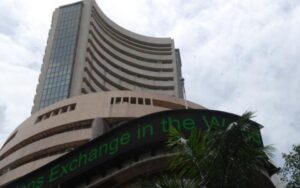The board of Twitter has agreed to a $44bn (£34.5bn) takeover offer from the billionaire Elon Musk.
Mr Musk, who made the shock bid less than two weeks ago, said Twitter had “tremendous potential” that he would unlock.
He also called for a series of changes from relaxing its content restrictions to eradicating fake accounts.
The firm initially rebuffed Mr Musk’s bid, but it will now ask shareholders to vote to approve the deal.
Mr Musk is the world’s richest person, according to Forbes magazine, with an estimated net worth of $273.6bn mostly due to his shareholding in electric vehicle maker Tesla which he runs. He also leads the aerospace firm SpaceX.
- Will Trump return to Twitter after Musk takeover?
- Why Elon Musk has been so keen to buy Twitter
- Musk buys Twitter: All you need to know – Podcast
“Free speech is the bedrock of a functioning democracy, and Twitter is the digital town square where matters vital to the future of humanity are debated,” Mr Musk said in a statement announcing the deal.
Controversial history
Mr Musk, who has more than 80 million followers on Twitter, has a controversial history on the platform himself.
In 2018 US financial regulators accused him of misleading Tesla investors with his tweets, claims that were resolved in a $40 million settlement and that Mr Musk continues to deny.
And in 2019 he was hit with a defamation suit – which he successfully defeated – after calling a diver involved in rescuing schoolboys in Thailand “pedo guy” on the platform.
On Monday, Mr Musk, who has been known to clash with journalists and block critics, suggested that he saw Twitter as a forum for debate.
“I hope that even my worst critics remain on Twitter, because that is what free speech means,” he wrote just hours before the deal was announced.
Can Musk turn Twitter around?
As part of the takeover, which is expected to close later this year, Twitter’s shares will be delisted and it will be taken private.
Mr Musk has suggested this will give him freedom to make the changes he wants to the business.
Among other ideas, he has suggested allowing longer posts and introducing the ability to edit them after they have been published.
Twitter shares on Monday closed more than 5% higher after the deal was announced.
But the price remained lower than Mr Musk’s $54.20 per share offer, a sign that Wall Street believes he is overpaying for the firm.
Mr Musk has said he doesn’t “care about the economics” of the purchase. However, he will take on a company with a chequered record of financial performance.
Despite its influence, Twitter has rarely turned a profit and user growth, particularly in the US, has slowed.
The company, founded in 2004, ended 2021 with $5bn in revenue and 217 million daily users globally – a fraction of the figures claimed by other platforms such as Facebook.
Bret Taylor, chair of Twitter’s board, said it had fully assessed Mr Musk’s offer and it was “the best path forward for Twitter’s stockholders”.
It is not clear who will lead the company moving forward. Twitter is currently led by Parag Agrawal, who took over from co-founder and former boss Jack Dorsey last November.
But in his offer document, Mr Musk told Twitter’s board: “I don’t have confidence in management.”
Mr Agrawal told employees on Monday that the future of Twitter is uncertain.
“Once the deal closes, we don’t know which direction the platform will go,” he said, according to the Reuters news agency.
Shareholder vote
Mr Musk’s targeting of Twitter has moved at remarkable speed. It emerged at the beginning of April that he had become the largest shareholder in the firm with a 9.2% stake.
He was then invited to join Twitter’s board but turned down the offer before launching a surprise bid for the company on 14 April, saying he wanted to “unlock” its potential as a bastion of freedom of speech.
Twitter tried to fend off his bid, threatening to dilute the shareholdings of anyone who bought more than a 15% stake in the firm. However, its stance shifted after Mr Musk revealed more financial details about his proposed bid.
He has secured $25.5bn of financing for the deal and will take a $21bn stake in the business.
The board unanimously approved the bid, which will now be presented to shareholders for a vote.
Elon Musk: Twitter’s new king
The speed this move has happened at had many heads in Silicon Valley spinning.
From nowhere, Elon Musk is the absolute monarch of Twitter.
He himself has said it’s not about the “economics”, this is about power and influence.
By taking the company private he will exercise total control over Twitter.
He has the power to do with the company as he pleases. In practice that will mean a much lighter moderation policy.
He also says that he will make its algorithm public – so that people can better understand how Twitter works.
The move leaves the door open to Donald Trump’s return to the platform, though he apparently says he would rather use his own social media platform Truth Social for now.
For years conservatives have argued that Twitter is biased against them – and the news has left Republicans in the US delighted.
Others have been left dismayed at what Twitter might look like without strong platform moderation.
You only need to look at how much criticism Facebook has received for not taking down groups linked to the QAnon conspiracy theory, or the Stop the Steal movement to imagine how much criticism Elon Musk is in store for.
The danger that Twitter now faces is that unfettered free speech on social media can become very ugly, very quickly.
Why do you think Elon Musk is buying Twitter?
I assume it’s because he has some genuine set of political and social beliefs about how Twitter should be run, and he feels like it isn’t being run that way. I also think that he gets a lot of pleasure and utility out of tweeting and wants it to be optimized for his use. The value of his company is enhanced by his being a very strange public figure on Twitter, and so he clearly sees a lot of value in tweeting, and probably wants to own that for himself.
It’s not immediately obvious why Tesla is valued as highly as it is. So how much do you connect Tesla’s worth to Elon Musk as a person and the way he orients himself toward the world, especially on Twitter?
Tesla is a company, a relatively small car company, that makes good high-end electric cars, right? And the stock-market value of Tesla, which makes Elon Musk the richest person in the world, comes from a lot of extreme optimism about Tesla’s future ability to make more cars and become the dominant player in car-making as cars become more electric. Also, he’s just, like, a sort of futurist visionary—he’s building tunnels that he seems to think will be the future of transportation. He’s sending rockets into space. And so the value of these companies in the market is largely derived from expectations around how much money they’ll make in the future, as opposed to how much money they’ve made in the past. And those expectations are probably helped by having a charismatic, noisy founder who makes a lot of jokes online and is sort of a science-fiction character himself, and portrays himself as a science-fiction character, and who appeals to people who like that by making jokes.
Tesla’s an expensive company to run. It’s not like a social-media company, where you rent some space from some servers and type some code. You have to build big factories to build cars. And, historically, Tesla has needed a lot of money to run itself, and Tesla has been able to sell millions of dollars of stock to new shareholders, to some extent bypassing the way Wall Street usually works, and not finding big institutions to sell stock through banks but, rather, going out to the market and selling stock to individual shareholders who are big fans of Elon Musk. So his public persona has helped him raise money to build a big company that does real things, and has also kept the valuation of that company really high because people like it and like him, and trust in his vision for the future because he is an accessible character to them in a way that a lot of other C.E.O.s are not.
None of that translates in any direct way to the idea that owning Twitter will make that more valuable. At least it doesn’t to me. It’s not obvious to me how, if he bought Twitter, he would then be better able to get his message out, or better able to tell a story in a way that is good for Tesla and good for his economic interests. But it’s not obvious that it wouldn’t be. And he’s a really smart guy. One possible way to tell this story is that Twitter doesn’t make that much money compared to Facebook and other social-media companies. It’s not that big a company in terms of market cap. He might say, “Look, I get so much value out of this direct access to the public.” Owning that direct access to the public—owning that thing that creates so much value for Elon Musk and Tesla—it has to be valuable somehow, whether it’s by increasing the value that it creates for Tesla, or whether it’s by finding a way to monetize the value that it creates for sports stars and celebrities and Donald Trump and lots of other people. You know, Donald Trump’s tweets back when he was on Twitter could create billions or trillions of dollars’ worth of market moves, right? And Twitter never made a lot of money off of that. It’s not obvious how the company would, but if you’re sitting on top of a thing that can create that much value, surely, if you’re really smart then you can extract some value out of it.
Twitter for his business image and business interests
In terms of the way that you described him using Twitter for his business image and business interests, is he sui generis, or do you see this more widely now?
I think it’s hard to imitate him, but I think people are, and I think that the classic example in the last five years or so has been the rise of meme stocks: companies like AMC and GameStop got very high market valuations and raised a lot of money through social media, popularity, and game memes. Adam Aron is the C.E.O. of AMC, and he’s this Harvard Business School graduate, a guy who’s worked at traditional corporate jobs. And he’s really embraced the meme-stock stuff, and does a lot of weird stuff on social media because his fans on Reddit and Twitter really like that and it seems to be good for the stock. And he’s pretty self-conscious about saying he works for retail meme investors now, and he’s going to do things that appeal to them.
I think there was this longtime perception that, if you were a high-powered corporate person, you could only get in trouble on Twitter and you should write bland things that are vetted by lawyers. And I think people are recognizing that Elon Musk has created a lot of value for his companies by being unhinged on Twitter. And I think there are imitators, and I think we’re kind of early in the game. There will be more imitators. And that applies to politics. It’s the obvious counterpart, where people have realized that you can make a lot of hay politically by being a poster.






